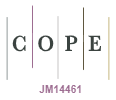Digital teacher training: a proposal for the creation of new possibilities for teaching and learning
DOI:
https://doi.org/10.5585/eccos.n64.22653Keywords:
education technology, extension course, teachers update, teaching, continuing training.Abstract
In this article we present the design and application of the Digital Teacher Training course. The aforementioned training contributed to the development of teachers of state education in Paraná at this time of adjustment and adequacy of pedagogical practice to online teaching, using simple methods and tools for its execution. Assuming that there is a vast collection of technological tools to be used in the educational context and that there are important themes that need to be discussed, the course "Digital Teacher Training" was structured in order to update teachers with the tools of greater potential for teaching curriculum content. In this way, the content was developed in order to include tools capable of revealing a three-dimensional approach to digitalization, involving experiences that go far beyond the student's reading, or a posture of mere reproduction by the teacher, but which allow the allocation of the teacher as a conductor in this digital literacy process by presenting a synesthetic world of learning to the student. For this reason, the tools selected should be as varied as the experiences lived in the digital field, student by student. The course was developed at the Federal Technological University of Paraná, synchronously and asynchronously, in the format of an extension course and updating of professors.
Downloads
References
AN Introduction to Hybrid Teaching: Learning Technologies. In: LEARNING TECHNOLOGIES (EUA). Cod Learning Tech. Chicago: College of DuPage, 2018. Disponível em: https://www.codlearningtech.org/PDF/hybridteachingworkbook.pdf. Acesso em: 12 maio 2022.
BACICH, Lilian; NETO, Adolfo Tanzi; TREVISANI, Fernando de Mello (Orgs.). Ensino Híbrido: Personalização e tecnologia na educação. 1 ed. Porto Alegre: Editora Penso, 2015.
BORBA, Marcelo de Carvalho; OECHSLER, Vanessa. Tecnologias na educação: o uso dos vídeos em sala de aula. In Revista brasileira de Ensino, Ciência e Tecnolologia. Vol. 11, n. 2, p. 181-213, mai./ago. 2018. Disponível em: http://dx.doi.org/10.3895/rbect.v11n2.8434. Acesso em: 02 mai. 2022
COSCARELLI, Carla Viana; RIBEIRO, Ana Elisa. Glossário Ceale (UFMG) – Temas de Alfabetização, Leitura e Escrita para educadores. Disponível em: https://www.ceale.fae.ufmg.br/glossarioceale/verbetes/letramento-digital. Acesso em: 02 mai. 2022.
COSCARELLI, Carla Viana; RIBEIRO, Ana Elisa (Orgs.). Letramento digital: aspectos sociais e possibilidades pedagógicas. 3 ed. São Paulo: Autêntica, 2007.
COSCARELLI, Carla Viana. CANI, Josiane Brunetti (Orgs.). Multiletramentos e multimodalidade: ações pedagógicas aplicadas à linguagem. Campinas, SP: Pontes Editores, 2016, p. 15-48.
LABOUR, M. Learner empowerment via raising awareness of learning styles in foreign language teacher training. In: S. J. Armstrong et al. (Eds.), Learning Styles: Realibility & Validity, Proceedings of the 7th Annual ELSIN Conference. 2002. Ghent: Ghent University, Belgium & ELSIN, p. 227-234.
LOZANO, R. A. Estilos de aprendizaje y enseñanza: um panorama de la estilística educativa. Mexico: Trillas; 2000.
XAVIER, A. C. S. Letramento digital e ensino. In: SANTOS, C. F.; MENDONÇA, M. (Orgs.). Alfabetização e letramento: conceitos e relações. Belo Horizonte: Autêntica, 2005, p. 133-148.
MARCUSCHI, L. Gêneros textuais emergentes no contexto da tecnologia digital. In: Hipertexto e Gêneros Digitais. Rio de Janeiro: Editora Lucerna, 2004.
VAN MERRIËNBOER, J. J.; JELSMA, O.; PAAS, F. G. Training for reflective expertise: A four-component instructional design model for complex cognitive skills. In Educational Technology Research and Development, Vol. 40, n. 2, p. 23–43, 1992. Disponível em: https://doi.org/10.1007/BF02297047. Acesso em: 17 Abr. 2022.
MIRANDA, Guilhermina Lobato. Ensino Online e Aprendizagem Multimédia. Lisboa: Relógio D’Água, 2009.
NATEL, Maria Cristina; TARCIA, Rita Maria Lino de; SIGULEM, Daniel. A aprendizagem humana: cada pessoa com seu estilo. In: Revista Psicopedagia. vol.30 no.92 São Paulo, 2013.
PINHEIRO, Regina Cláudia. Conceitos e modelos de letramento digital: o que escolas de ensino fundamental adotam? In Linguagem em (Dis)curso – LemD, Tubarão, SC, v. 18, n. 3, p. 603-622, set./dez. 2018. Disponível em: http://dx.doi.org/10.1590/1982-4017-180309-13617. Acesso em: 12 mai. 2022
ROJO, Roxane; MOURA, Eduardo (Orgs.). Multiletramentos na escola. São Paulo: Parábola Editorial, 2012.
SCHUHMACHER. Elcio. As contribuições da formação continuada no uso de tecnologias educacionais para professores da Educação básica do programa novos talentos. In: IV Simpósio Nacional de Ensino de Ciência e Tecnologia. UTFPR, Ponta Grossa, 2014. Disponível em: https://linkss.app/ZsHQo. Acesso em: 12 mai. 2022
SILVA, Elaine Teixeira da. Multiletramentos e letramento digital nas aulas de língua espanhola: um relato de experiência com o uso do whatsapp. XIV EVIDOSOL e XI CILTEC - Online - junho/2017. Disponível em: http://www.periodicos.letras.ufmg.br/index.php/anais_linguagem_tecnologia/article/view/12121. Acesso em: 29 mai. 2022.
SOARES, Magda. Novas Práticas De Leitura E Escrita: Letramento Na Cibercultura. Educação e Sociedade. Vol.23, n. 81, dez. 2002, p.143-162. Disponível em: http://www.scielo.br/pdf/es/v23n81/13935.pdf. Acesso em: 07 mai. 2020.
SOARES, Magda. Letramento: caminhos e descaminhos. 2004. Revista Pátio - Artmed Editora. Disponível em: https://acervodigital.unesp.br/bitstream/123456789/40142/1/01d16t07.pdf. Acesso em: 22 mai. 2022.
Downloads
Published
How to Cite
Issue
Section
License
Copyright (c) 2023 Dos autores

This work is licensed under a Creative Commons Attribution-NonCommercial-ShareAlike 4.0 International License.
- Abstract 1059
- PDF (Português (Brasil)) 879






